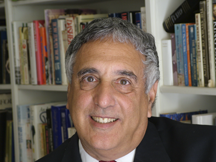|
San
Diego Jewish World
over the activity of an engineered protein. Such activity can be brought to a desired level or returned to its natural level, at specific locations in the body and at specific times – all this by giving exact and well-timed doses of the same simple drug. In addition, the method could be used one day in gene therapy. It may be possible to replace damaged proteins that cause severe diseases with genetically engineered proteins, and to control these proteins’ activity levels in a precise manner – by giving appropriate doses of the drug. Another potential future application is in agricultural genetic engineering. The method might make it possible, for example, to create genetically engineered plants in which the precise timing of fruit ripening would be controlled using a substance that increases the activity of proteins responsible for ripening. Moreover, numerous proteins are used in industrial processes, as biological sensors and in other applications. The possibility of controlling these applications – strengthening or slowing the rate of protein activity in an immediate and reversible manner – can be of great value. Prof. Mordechai Liscovitch's research is supported by the Nella and Leon Benoziyo Center for Neurological Diseases; La Fondation Raphael et Regina Levy; and the Estate of Simon Pupko, Mexico. Prof. Liscovitch is the incumbent of the Harold L. Korda Professorial Chair of Biology.
The Weizmann Institute of Science in Rehovot,
Israel, is one of the world's top-ranking multidisciplinary research
institutions. Noted for its wide-ranging exploration of the natural and exact
sciences, the Institute is home to 2,600 scientists, students, technicians and
supporting staff. Institute research efforts include the search for new ways of
fighting disease and hunger, examining leading questions in mathematics and
computer science, probing the physics of matter and the universe, creating novel
materials and developing new strategies for protecting the environment.
|
||||||||||||
|
Matthias Burchard of the UN Relief and Works Agency for Palestine Refugees in the Near East (UNRWA) told reporters in Geneva that the re-opening of the Karni crossing, which used to handle 200 to 300 trucks each day is particularly crucial in order prevent a food shortage in two weeks’ time. He told a press briefing in Geneva that the refugee poverty rate has now risen to 88 per cent, with UNRWA now providing food aid to 860,000 people in Gaza alone. The UN World Food Programme (WFP) said it has been able today to use one crossing point, at Kerem Shalom, to transport some 400 tons of food aid to Gaza, and added that more food aid needs to come in, with commercial stocks running low. Food and other humanitarian supplies must continue to enter Gaza if a major humanitarian crisis is to be averted, WFP’s Simon Pluess told the press briefing. Meanwhile, the UN Children’s Fund (UNICEF) said it is delivering emergency medical supplies and vaccines to help prevent outbreaks of measles, tuberculosis and other diseases among children in Gaza. With little access in or out of Gaza, stocks of essential medicines are at critical levels, and health facilities are struggling to address the needs of an “exhausted and traumatized population,” according to a press release from the agency, which said it is working to treat children suffering from shock and extreme stress. Despite shortages of everything from fuel to medicines, the UN World Health Organization (WHO) confirmed today that hospitals inside Gaza were staying open. WHO also confirmed that Israel had allowed a brief opening at the Erez crossing so that urgent medical cases from Gaza could be transferred to Israeli hospitals. Amid the worsening humanitarian situation, UNRWA announced it would start a ten-week programme of games for 192,000 children and youth in Gaza today. The preceding story was provided by the United Nations.________________________
AJC praises Senate for passing energy bill WASHINGTON, DC (Press Release)—The American Jewish Committee applauds the Senate for adopting bipartisan and comprehensive energy legislation earlier this week. "Greater energy security means greater national security," said AJC Executive Director David A. Harris. "This bill will enhance U.S. energy security by reducing our dependence on foreign oil and also will benefit the environment by mandating use of alternative fuels." AJC urges the House to move quickly to follow the Senate's lead by passing an energy bill at least as strong, and urges the President to sign expeditiously legislation addressing what he has appropriately called our nation's "addiction" to oil. The multi-faceted approach adopted by the Senate aims to reduce dependence on foreign oil through enhanced efficiency standards for cars and buildings, incentives for alternatives, and a variety of other measures. For the first time in more than 20 years, the Senate bill will raise the Corporate Average Fuel Economy (CAFE) standards for all passenger cars and light trucks by roughly 40 percent by 2020. The bill also includes provisions to mandate increased use of ethanol from sustainable sources.
"By including language from the DRIVE Act, a bill AJC has long supported, the
Senate is laying the groundwork for the American automobile industry to
seriously promote the development of plug-in hybrid vehicles and other efficient
vehicle technologies," said Harris.
Fellow translator led a
quiet life worth remembering
Born in Berlin in 1928, Miriam was brought to Israel in 1934 by her divorced parents. Both remarried but her father committed suicide when she was seventeen, marking forever a life disrupted by world disaster and private tragedy. Miriam attended various residential educational institutions, then studied math and physics at university. Married and divorced twice, she remained on excellent terms with both ex-husbands, but death always attracted her more than life. Miriam never abandoned the socialism that was inculcated in Israel’s youth in the 1940s and 1950s. She accumulated no possessions (except a few books and records) and left a promising career in Israel’s civil service to study philosophy. She lived alone and translated numerous books in psychology, philosophy and history, managing to understand the most esoteric of subjects. With the years Miriam went out less and less and saw very few people. Her kindness invariably got the better of her, however, and beggars would knock on her door knowing that she would never turn them away empty-handed, even if it meant that she went hungry. Material concerns were never Miriam’s forte. Miriam donated her body to science, and so there was no funeral. Some friends gathered at her house later that week. It was a painful meeting for all concerned. Miriam’s life could have been happier, more productive, less lonely if only the world had known how to alleviate the sadness that overshadowed her brilliant mind.
The
foregoing article was reprinted from the AJR Journal (Association of
Jewish Refugees) in England.
Not kosher to eat, but shrimp are great to study Ben-Gurion scientists find males have reproductive cycles BEER SHEVA, Israel (Press release)—The whiteleg shrimp, which is native to the eastern Pacific Ocean and farmed in South America for food, is the first creature ever identified whose male has a monthly reproductive cycle (or "period.") This startling discovery sheds new light on the widespread belief that males are always ready to mate. Known in Latin as Litopenaeus vannamei, the creature is not really a shrimp, but a prawn that is caught from Sonora in Mexico to northern Peru. A small amount is also farmed off the waters of Texas. The males of the species produce two "packets" of sperm that are stuck to the female during intercourse. If the male does not use these packets, they are liable to become so hard that the male is unable to ejaculate them. As a result, the sperm in effect have a "use-by" viability date, after which the male becomes impotent. BGU researchers headed by Prof. Amir Sagi of the Marine Biology and Biotechnology Study Center and affiliated with the National Institute for Biotechnology of the Negev, discovered that the male whiteleg have a mechanism that - during their youth - allows them to avoid the stiffening of the sperm packets and resulting impotence. Sagi and lab researchers Shmuel Parnas, Shaul Raviv and Assaf Schechter raised 50 males and followed their behavior over a period of eight months. They also documented the cycles of the whitelegs' sperm production. At the end of every two-month cycle, the sea creatures lose their armor-like shell and grow a new one. Males that have not mated were found to have lost their old sperm packets near the last few hours of their "periods," and new ones appear in their place. This means that male whitelegs renew their sperm packets in a cyclical manner, once every two weeks, in perfect coordination with losing their armor, a process that is accomplished through hormonal supervision. Parnes explained that this process is very similar to menstrual cycles in human females and primates of reproductive age whose endometrium (uterine lining) breaks down and is eliminated in the form of blood. "Even if the young whiteleg male does not have success producing progeny during one cycle," Parnes said, he still has another chance with the next cycle without becoming impotent. This finding puts a new light on the common belief that males always want to mate." The discovery has aroused much interest among scientists and been published in journals such as Experimental Biology, as well as New Scientist and in programs such as BBC Wildlife.
The foregoing story was provided by Ben-Gurion
University of the Negev.
JERUSALEM (Press Release)—Manuscripts of scientist Sir Isaac Newton – never
before revealed to the public – are on show at the Jewish National and
University Library at the Hebrew University of Jerusalem, at an exhibition that
opened June 18. The foregoing story was provided by Hebrew University (Return to top) Alfred Mann Research Center opens at Technion HAIFA, Israel (Press Release)—Last year, American entrepreneur and philanthropist Alfred Mann signed an agreement with the Technion for the establishment of an institute for research and development in biomedicine. Towards this end, he made an unprecedented donation of $100 million to the Technion. Last week, the institute was officially opened. The institute will focus on the development of knowledge created at the Technion in biomedicine, medical equipment and the life sciences. Thus the Technion joins the University of Southern California, where Mann established a similar institute a number of years ago. It is Alfred Mann’s intention to establish more than 10 such institutes in leading American universities. The Mann Institute at the Technion is the only one located outside the US. Alfred Mann confirmed that the driving force behind his decision to set up the institute at the Technion was his wife Claude. Her father, who was not Jewish, was sent to a Nazi concentration camp in Germany for helping Jews in France. Claude was born in the concentration camp. Since her childhood, she has had a deep and warm connection to the Jewish people. Last week, the Alfred Mann Institute at the Technion inaugurated a complex of laboratories in her name. “I love Israel and will do whatever I can to ensure that the Mann Institute at the Technion will thrive and succeed,” Claude Mann said at the ceremony. Alfred Mann said that he chose the Technion after years of having thoroughly checked out universities around the world and after he was convinced of the Technion’s excellence. According to Mann, the uniqueness of the Technion in integrating medicine, science, engineering and technology ensures that the research institute will achieve impressive results and will quickly become one of the world’s leaders. Technion President Prof. Yitzhak Apeloig stated that, in establishing the institute, the American philanthropist was recognizing the Technion’s uniqueness and its tremendous contribution to Israel’s economy and strength, as well as the Technion’s great inherent potential to develop science and medicine. He stressed that this represents “a step up” in the Technion’s ability to develop and implement its researchers’ inventions and knowledge. He expressed his confidence that not long from now, the engineering and medical inventions, which are the fruits of the Alfred Mann Institute at the Technion, will form the basis for setting up successful companies. “The Technion will put at the institute’s disposal information on its intellectual property in those areas in which the institute deals, and will give it the right to develop and commercialize this property,” said the Technion President. The board of directors of the Mann Institute is made up of six representatives of the Technion, appointed by the Technion President, and six representatives of the donor, including Alfred Mann. The director of the Mann Institute is Dr. Zeev Gilkis, former investment director of Comverse.
The
foregoing article was provided by the Technion
“The History of the Jewish People: A Story of Tradition and Change” (Behrman House, 2006) is written for students in grades 6-8. The AEP, the umbrella organization for educational publishers in North America, maintains a membership of 400 publishers. A panel of publisher-judges works to recognize the “best educational materials” within specific categories and selects the award-winners. The textbook includes 115 color pages, 16 maps and special features that ask students to investigate certain questions, examine key vocabulary words and learn more about famous figures in each time period. Some examples of chapter topics include the early Israelites, the age of Hellenism, Judaism and Christianity, Babylonia, Medieval Europe, revolution and emancipation, Judaism and the modern world, the rise of anti-Semitism and U.S. Jewry, 1820-1890.
The book is the first of two in “The History of the Jewish People” series. The
second edition, “The Birth of Zionism to Our Time,” was released in April of
this year.
Congressional partisanship out of place when Iran's terrorist clients occupy 3 of Israel's borders SAN DIEGO—The more I think about it, the more disappointed I am with both the Republicans and the Democrats in the House of Representatives for using support for Israel as a political football. I'm glad that the Foreign Operations Appropriations Bill was adopted by the House of Representatives, even if it was by the relatively narrow vote of 241-178, and I hope some compromise will be reached so that the $2.44 billion in military and refugee assistance to Israel can win passage in the Senate and then be signed into law by President George W. Bush. With two Iranian clients, Hamas and Hezbollah having taken over territory adjacent to Israel's northern and southwestern borders, and Iran's ally Syria sitting on the northwest border, Israel faces very real dangers. Assuring its continual military supremacy is just too important to become hostage to a fight between the two parties over whether United States taxpayer funds should be used to pay for contraceptives in Third World countries. A member of our Jewish community, U.S. Rep. Nita Lowey (Democrat, New York) got an amendment to the appropriations bill adopted that permits the United States to support overseas distribution of various forms of contraceptives. Pro-Life forces immediately raised a hue and cry over whether such an amendment indirectly might also support abortion. Although Lowey's legislation stipulates that abortion is not a permitted use—in fact, shesays contraception is intended to reduce the need for abortion—the Pro-Life forces argued that money is "fungible." In other words, if the U.S. gives a Third World Country money for contraceptives, that country can divert the amount it would otherwise have spent on contraceptives and use it on abortions. Therefore, in the Pro-Life view, such an appropriation is an indirect subsidy for abortions. I believe that argument, if carried to its logical conclusion, would militate against any kind of aid, whether it be for water purification, rural development, or military defense. Obviously, if the recipient countries don't have to spend as much of their money for such things, it could leave them free to use the money for other purposes, such as abortion. Personally, I support a woman's right to choose, whether that woman lives here in the United States or in an impoverished country. So, if somehow the money found its way to a group similar to Planned Parenthood, this would be fine with me. However, pangs of conscience on this issue (or at least the need to please an important constituency) evidently affects many members of Congress—particularly on the Republican side of the aisle (164 Republicans and 14 Democrats voted against the Foreign Operations Appropriation bill.). In my view, it is bad politics to link these two issues—support for Israel, and support for contraception. Each should each be considered on its own merits, and not used to leverage votes for or against each other. Congresswoman Lowey did Israel no favor by insisting that the contraception amendment be included in the same appropriation bill—instead of finding a way to insert it in some other supplemental bill. So I am disappointed in her and those who embraced that tactic. At the same time, I am disappointed in the opponents to the bill who have taken the position that a highly speculative hypothetical danger concerning contraception financing is more threatening to the world than the very real dangers posed by Iran's terrorist clients, Hezbollah and Hamas, armed to the teeth and sitting on Israel's borders. I'm disappointed that Eric Canter of Virginia, the only Jewish Republican member of the House of Representatives, voted against the appropriation. It seems to me that if people want to worry about a "right to life," they should worry about the right of civilians in the Middle East to live without being blown up, or captured and tortured by terrorists. If it comes down to a choice, that's just a lot more important in my view, than the possibility that a Third World government might run the risk of incurring American ire by diverting funds to pay for abortions. This sterile debate between Republicans and Democrats, this partisan gamesmanship conducted when lives are at stake, burnishes my understanding why so many people are calling for an end to the partisanship in Washington—which seems just as bad under the Democrats as it was under the Republicans. No wonder that a possible independent presidential candidacy by New York Mayor Michael Bloomberg is stirring such interest around the country.
*U.S. Sen. Dianne Feinstein (Democrat, California) is in the middle of a controversy over a proposed amendment to the Immigration Bill concerning whether cities can require stores like Home Depot --where temporary workers often hang out --to build temporary hiring centers. Opponents tell the senator there are questions about whether Home Depot might be liable if a dispute arose between the worker and the homeowner. Proponents say the home improvements company might be liable now for problems that could arise from homeowners contracting with laborers they meet in the parking lot. The story by Anna Gorman is in today's Los Angeles Times. *It's a positive review from Rabbi Brad Hirschfeld of the National Center for Learning and Leadership (CLAL) for Evan Almighty, because the movie shows it is possible to start over. His quote is in today's San Diego Union-Tribune. Tyra Damm of the MCT News Service writes about the fascination the world has had with the Noah's Ark tale in another story appearing in today's San Diego Union-Tribune. On the other hand, columnist Debbie Schlussel of Front Page Magazine was quite critical of A Mighty Heart, which she says minimizes the Jewishness of Daniel Pearl. Here's a link. At the Paramount Sudios, meanwhile, an interreligious panel gave the film generally high marks, but some in the audience disagreed. Here's a link to a story by Rebecca Trounson in today's Los Angeles Times. *Can you name 10 religions? A program in Poway will introduce that many religious belief systems on successive Thursday nights in Poway. Okay, Judaism is one of them. Can you name nine others? Andrea Moss does so in a story that appeared in today's North County Times. *Staff members of the Quartet—representing the United States, Russia, the European Community and the United Nations--will meet Tuesday in Jerusalem to discuss spurring peacemaking efforts between Israel and the Palestinian government of Mahmoud Abbas in the wake of the Hamas takeover of Gaza. The Associated Press story is in today's San Diego Union-Tribune. Elsewhere in that newspaper, Charles Krauthammer suggests in his column that Israel should respond to any further rocket attacks from Gaza by cutting off that nation's gasoline and electricity. *One element of the foreign aid bill adopted by Congress was a reduction in aid to Egypt from $1.3 billion to $1.1 billion unless it does more to patrol the border between its Sinai Desert and Gaza. U.S. Rep. Nina Lowey (Democrat, New York) said it is a warning to a good friend that there is a lot of concern about this matter in Congress. Egypt's Ambassador to the United States, Nabil Fahmy, called the provision "shortsighted" adding it "leaves a very bad reflection on how America treats its friends — very few of whom actually remain." The story by Paul Richter is in today's Los Angeles Times. *Aaron Sorkin, best known for television's West Wing, now plans to produce a Broadway play about the invention of television, The Farnsworth Invention. The story by Lynne Hefley is in today's Los Angeles Times. *U.S. Rep. Henry Waxman (Democrat, California) is battling President George W. Bush and Vice President Dick Cheney over whether their offices should be subject to the same policy other offices in the executive branch are subject to concerning the handling of classified documents. The story by John Meyer is in today's Los Angeles Times. *His public reputation was that of a dedicated civil rights attorney, but a jury decided that in private Stephen G. Yagman was guilty of tax evasion, bankruptcy fraud and money laundering. The multiple count conviction could mean as much as six years in federal prison. The story by Joe Mozingo and Henry Weinstein is in today's Los Angeles Times. *Zev Yaraslovsky and two other members of the Los Angeles County Board of Supervisors, Gloria Molina and Mike Antonovich, say they are ready to vote to pull the plug on troubled King-Harbor Hospital. The story by Charles Ornstein and Jack Leonard is in today's Los Angeles Times. Today's tipster: Rev. Abigail Albert, Family Spiritual Center
________________________________________________ IN MEMORY—Irving Bengelsdorf, a long-time science writer for the Los Angeles Times who retired to Oceanside, died at a hospice with his family in attendance on Friday, June 22. Here is a n e-mail from the wife he has left, Beverly: "This is the saddest letter I have ever written. On Friday morning, June 22nd, Irving passed away. He has been quite ill for many months and with 3 1/2 years of dialysis and other previous illnesses, it all became much more than he could handle both physically and mentally. He entered hospice on Saturday, June 16th and passed away the following Friday, pain free. Ruth, Jean-Claude, Lea, Terry, and Judy were all here and it was possible for us to visit with him. Irv chose to have hospice at home so we were all able to be together with him to use the new term, '24/7.' There will be no funeral service, but we request that if you wish, donations in Irv's name may be made to: The Elizabeth Hospice, 150 W. Crest Street, Escondido, California 92025. (800) 797-2050 www.elizabethhospice.org"
BASEBALL JEWS—Stories, columns and charts from the San Diego Union-Tribune
provided this information for our linking service concerning the activities and
performances of Jews in major league baseball on Friday, June 22: Oy,
pitcher
Jason Hirsch of the Colorado Rockies shudda stayed home in bed. He gave
up five runs before being mercifully lifted in the fifth inning. Three
Jays clobbered him with round-trippers: Vernon Wells, Adam Lind, and Alex Rios
en route to the Jays' 9-8 victory... It was a nice outing for 2nd baseman
Ian Kinsler of the Texas Rangers who collected two hits, including his
11th double and 33rd RBI of the season, and scored twice during his team's
victory over the Houston Astros. On the other hand, there was little to
kvell about in the batting performance of
Brad Ausmus. Four times he went to the plate, four times he
returned right afterwards to the bench. Overall, Ausmus actually is doing
better as a hitter than Kinsler, with a .267 average compared to .239, but try
telling that to either of them after the game in their respective clubhouses...
If Kinsler did well,
Shawn
Green of the New York Mets did even better in the batter's box as his
team demolished the Oakland A's 9-1. Green collected his 15th double and
his 6th homer, bringing his RBI total for the season up to 26. Another day
like that, and he'll be back over a .300 average, but as of yesterday he was at
.296...
Kevin Youkilis and fellow Boston Red Sox hitters Dustin Pedroia, Manny
Ramirez, and Jason Varitek gave the San Diego Padres a lesson in math: 1 + 1 + 1
+ 1 = 2, meaning that four singles (in the fourth inning) added up to two Sox
runs, all they needed behind the pitching of
Daisuke Matsuzaka
to defeat the Padres 2-1. Youkilis' batting average as of now is .331.
|
||||||||||||


 The
Jewish
Citizen
The
Jewish
Citizen Jews
in the News
Jews
in the News








